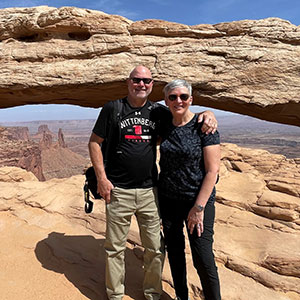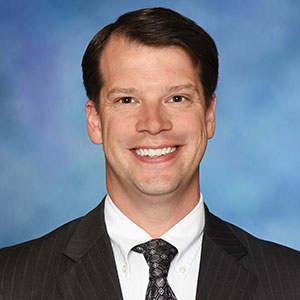 Tim Kuryla
Tim Kuryla
Class of 1964
Kentucky Division of Water, Policy Analysis
Lexington, Kentucky
My minor was Speech (Debate was a credit course). I did 4 years of Debate.
Beginning my junior year, my major was merged into History. My minor (Speech in Dep of Drama and Speech) was merged into English. Many years later, Political Science became again its own department. That belied the 1963 reorganization. My conjecture at the time: Mergers were done to remove people from hiring power.
My December 1970 MA in Political Science is from the University of Kentucky. I began in January 1966. I was drafted in August 1966. At the time, I worked for the Legislative Research Commission. I had finished my research and started writing the LRC study on the Powers of the Fiscal Court.
I returned to UK in August 1968. I liked place in 1966. I did not as much in 1968 because I was not a behaviorist. But I received in Basic Combat Training my UK Full Standing Letter. So I had to be accepted back. I salvaged what I could from the courses so I could get my MA; for example, I took two extra courses in lieu of writing a research paper.
Because a place could change extensively in two years, I would not know what to tell aspiring political science majors, especially on going back to do graduate work after being few years out. If Wittenberg was behaviorist when I began in Political Science, I would have majored in something else, such as Philosophy. My first of my 3 philosophy courses was second semester Junior Year. I had a 4.0 GPA in Philosophy.
Since I returned in 1968 from the Army, I have lived in Lexington, Kentucky. But, except for a local research company and for night auditing at a motel during hard times, I worked in Frankfort., mostly for the Commonwealth of Kentucky. I commuted from Lexington. I worked as Legislative staff for the 1979 Southern Legislative Conference. In the early 1970s, I was in Community College at Kentucky State University in Frankfort. My longest stint was with the Kentucky Division of Water from January 1980 until I retired in August 2003. At that research place in 1970 & 1971, I worked on the Kentucky State Solid Waste and Framework Water Plans. Little did I realize back then, I would have later a career in Environmental Protection.
In the beginning for Water, I followed proposed legislation, and wrote proposed regulation and legislation. From 1981 onward, I coordinated Water’s review of Applications for Federal Assistance and of environment documents. My idea of travel was walking among our buildings or driving to other executive branch agencies, or to the Legislative Research Commission in the Capitol. In appreciation of my coordinating and writing responses for those reviews, upon my retirement, the Secretary of Natural Resources and Environmental Protection commissioned me as an Admiral in the Great Fleet of the Commonwealth. Not many of those commissions were awarded. Regarding the Intergovernmental Reviews (Applications for Federal Assistance), a Kentucky Area Development District person involved in shepherding local government applications, said that I was strict [in asking for useful information] but thorough in my responses. Regarding the environment responses, a State Environmental Review Officer said that Water gave you an answer you could use.
In the Army, I was sent to an infantry company in West Germany. This was February 1967. Within a week, I was sent to Unit Level Clerk School. Upon my return end of March 1967, I began April 1967 as Company Clerk of Company A, 2nd Battalion of 54th Infantry (Mechanized) of the 4th Armored Division. I went from Private E-2 to Specialist Five E-5 by the time I was rotated back to the States for discharge. Annual Inspections are a given in the Army. We had one in May 1968. It was a serious inspection on how I as Company Clerk did my work. We were the most improved Orderly Room in the Battalion! For that, I was awarded a Fourth Armored Division Certificate of Achievement. Not many of those were awarded. It did not hurt that I took from Kurt Fickert Conversation German in addition to 2nd Year German. As Company Clerk, I fielded local as well as Army telephone calls, a lot of the former in German. Plus I could go places where only German was spoken and menus printed in German.
Since fellow classmate and Political Science Major (as Acting President) Bill Steinbrink announced at the 2005 64-65-66 + 74-75-76 re-union the Melvin Henry Arthur Laatsch Political Science Faculty Scholarship, I have contributed annually to it. I hope you have benefited from the MHAL fund. Somewhere on the closed to vehicles part of Woodlawn, is a stone marker with my name. I should mention that in the Class of 1964 there were two of us who were both Political Science Majors and Speech Minors: John McLaughlin and I. John had a career with the CIA; I had one in Kentucky environmental protection.
A bit of WU trivia: In the late 1980s a nearby state government colleague who worked for the Environmental Quality Commission was Scott Richards. We were not seated that far away. He was in telephone conversation with his sister Cindy. She mentioned that she had a good interview in the WU English Department. Scott pronounced that I graduated from there and I was very well connected! When Scott got off the phone, I said wait a minute! Just because in June 1960 when he was Assistant Registrar Bill Kinnison preregistered me; and because in 1973 or so when I had a luncheon appointment in the University Union with Bob Buchy of Alum Affairs to talk shop, Bill upon seeing me with Bob decides to join us; does not mean I am that well connected. Bill was President at the time. Just after Bill joined us, I noticed Karl Peterson entering the dining area; so I asked him to join us.
I would call my Phi Mu Delta fraternity (PS1963) brother Bob Ness and the Nobel Lynn (1964) very well connected. Bob has served on the board. Obviously donates well. The Ness family name greets people in what was a new building.
On one visit to campus to say hi to Pam Reisner, I walked past Cindy’s office to say hello. Otherwise, if I am traveling through, I visit the people I know in Alum and Development. Thus, I regularly drop by every year or so. Pam was my sister’s Mary’s math graduate student at MSU. When Pam told Mary that she was doing the math workshop at Wittenberg, Sis told Pam that I visited regularly the Campus. That is how I became friends with Pam.
I will close with a Laatschism: What does government? Government does for the many deemed necessary by the many but affordable by only the few.


 Tyler Yaple
Tyler Yaple Amanda (Stevens) Baldwin
Amanda (Stevens) Baldwin Bob Irvin
Bob Irvin Tim Kuryla
Tim Kuryla Myron Mason
Myron Mason Steve Thompson
Steve Thompson Barry Zulauf
Barry Zulauf